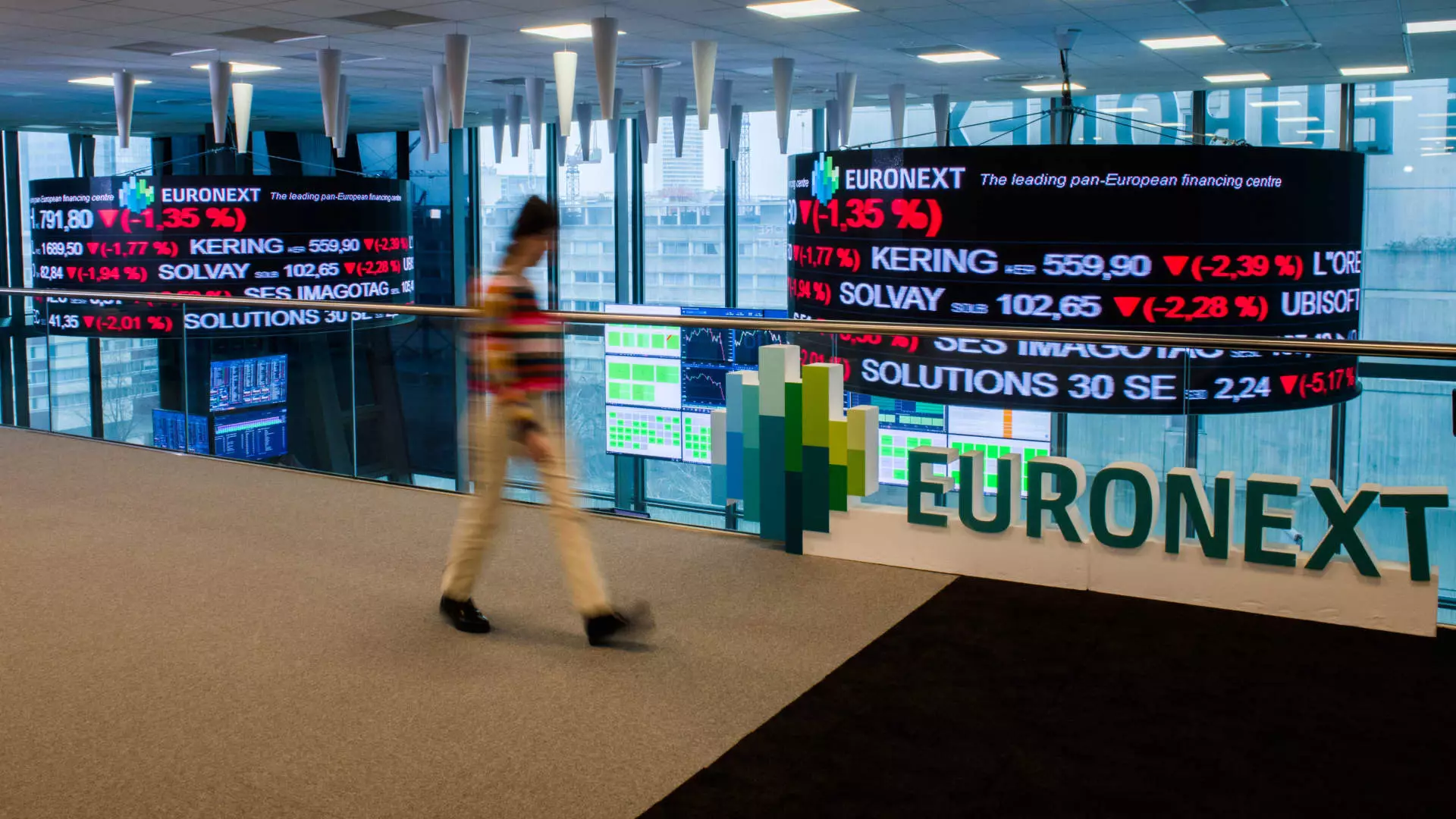Recent political developments in the United States have triggered notable reactions in global stock markets. On a day where major U.S. indexes set record highs, the mood across international markets was decidedly more somber. A wave of selling was observed in specific exchange-traded funds (ETFs) tied to countries like South Korea, Hong Kong, Taiwan, and Chile, signaling a growing concern among investors about the implications of Donald Trump’s election victory for global equities.
One of the key factors contributing to this anxious backdrop is Trump’s proposed tariff policies, which could have sweeping consequences for international trade. His administration’s consideration of imposing a 20% tariff on all imported goods, with an even steeper 60% tax specifically targeting products from China, stokes fears of a potential trade war that could disrupt global supply chains and business operations. This has raised alarms not just for exporters, but also for economies that are heavily intertwined with U.S. trade.
Despite polling indicating significant disapproval of such tariffs among voters, their influence on the electoral outcome raises questions about the disconnect between public sentiment and the market’s anticipated trajectory. With many Americans prioritizing economic stability in their voting preferences, the overlooked consequences of these trade policies could lead to turbulence ahead for international markets.
The contrast between U.S. market exuberance and international market caution is stark. While the Dow Jones Industrial Average surged, driven by investor confidence and effective corporate earnings, European markets faced a dismal session. For instance, the iShares Core MSCI Europe ETF experienced a significant drop of over 2%, reflecting apprehensive sentiment about the future of trade fundamentals. In Asia, the Nikkei 225 offered a glimmer of resilience and bucked the downward trend to some extent, yet broader indices like the iShares MSCI China ETF bore losses over 2%.
Conversely, the most notable outlier in this environment was the Global X MSCI Argentina ETF, which outperformed and touched a new 52-week high. This instance signifies that political shifts within individual nations can yield unique investment opportunities, as evidenced by Argentina’s recent electoral choice of a libertarian president akin to Trump.
Currency Concerns and Global Impact
Another significant element in the evolving market landscape is the strength of the U.S. dollar. Following the election, the ICE U.S. Dollar Index surged to levels not seen since July, reflecting rising inflation expectations. Continued currency strength poses challenges for international stocks, particularly those in emerging markets, which have lagged behind their U.S. counterparts in performance over recent years. The decline of over 1% in the iShares MSCI Emerging Markets ETF underscores the pressure these investments face amidst a shifting currency landscape.
As the political landscape in the U.S. reshapes international market dynamics, investors must carefully navigate the emerging uncertainties. The proposed tariff policies not only threaten global trade relations but also significantly affect investor sentiment. Understanding these complexities will be critical for market participants as they adjust to a reality where U.S. policies may play increasingly pivotal roles in global economic conditions.

